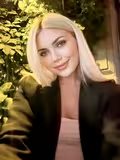Examination of the personal, ideological, political and socio-economic, and geopolitical factors that have shaped Russian foreign policy since 1800. Understanding how these factors interacted in specific cases, to identify permanent and contingent elements in Russian russian foreign language course syllabus policy, and to consider continuity and change in Russian foreign-policy behavior during the past two centuries. This course examines the geopolitical, political, military, socioeconomic, and ideological factors that are challenging security and stability in the region of Central and Eastern Europe after collapse of the USSR.

The goal is to give students a broad understanding of the reasons for the worsening security and stability in the region, particularly the Baltic states, Visegrad states, and GUAM member states, and to model further potential developments. A study of Russia’s interaction with the nomads of the Eurasian steppe. Topics include the Mongol invasion, the Mongol Empire in Asia and the Golden Horde, Islam, nomadic society, and the Russian state. An introduction to the principal events and issues during the transformation of Russia in the years 1650 to 1725.
Soviet filmmakers and theorists in the 1920s were preoccupied with the way that the established cinema harnessed perception in socially determined, class-specific ways, and sought a variety of alternatives. This course examines those alternatives and their limitations, as postulated in theory and realized on film, as well as their long-term, global influence on theoretical and moving image practice. Gender is an intensely politicized fault line that runs through post-Soviet society. This seminar considers, from an ethnographic perspective, how gender has become a site of explicit politicization and contestation in post-Soviet societies.
Stalin’s regime condemned in 1936, exactly 100 years later. The Polish film school of the 1950s and the Polish New Wave of the 1960s. Pressures of politics, ideology, and censorship on cinema. Topics include gender roles in historical and contemporary narratives, identity, ethos of struggle, ethical dilemmas, and issues of power, status, and idealism. Films by Wajda, Munk, Polanski, Skolimowski, Kieslowski, Holland, and Kedzierzawska, as well as selected documentaries.
Readings by Milosz, Andrzejewski, Mickiewicz, Maslowska, Haltoff, and others. Close reading of Kundera’s novels, with analysis of his aesthetics and artistic development. Relationships to French, German, and Spanish literatures and to history, philosophy, music, and art. Topics include paradoxes of public and private life, the irrational in erotic behavior, the duality of body and soul, the interplay of imagination and reality, the function of literary metaphor, and the art of composition. This graduate seminar explores Russian Symbolist poetry in cultural and international contexts. Survey of Russian literature and culture since the fall of communism.





